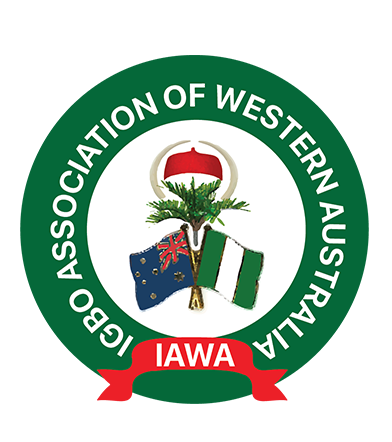About Igbo People
The Igbos or Igbo people as fondly described are found predominantly in the South-eastern part of Nigeria in West Africa and all Igbos have shared ancestry. The Igbo ethnic group is one of the three major ethnic identities in Nigeria. The other two are the Yorubas in the South-west and the Hausas in the north. There are, however, more than two hundred and fifty ethnic groups within the Nigerian enclave, each with its own linguistic identity. Statistically, the Igbos make up more than 25% of Nigeria’s estimated one hundred and seventy-seven million population. This excludes millions of Igbos in the diaspora which make up the bulk of Nigerians found beyond the shores of the nation.
The origin of the Igbo people remains a subject of historical debate, and this debate has largely fizzled out because of a decline in Igbo scholarship. However, one of the most widely acceptable hypothesis is that Igbos are descendants of “Nri”, and there is archaeological evidence that suggests that this Nri hegemony in Igbo land may go back as far as the 9th century. Royal burials have been unearthed dating to at least the 10th century. Eri, the god-like founder of Nri kingdom (Umu Nri as they are presently called) is believed to have settled in the region around 948 AD. It has been postulated that Eri was one of the lost tribes of Israel and this is gaining increasing traction with many Igbos believing they are black Jews. The first Eze Nri (King of Nri) succeeded Eri, and the kingdom of Nri was considered a thriving religio-polity, a sort of theocratic state which emerged within the Igbo heartland around 1043AD.
Igbo people are traditionally craftsmen, farmers and traders, but Igbos also boast some of the best and brightest within the global intelligentsia community. The Igbos are highly urbanised with metropolitan cities and towns such as Onitsha, Enugu, Aba, Owerri which are reflective of Igbo ingenuity and entrepreneurship. Before the British colonial incursion into Nigeria in the 20th century, Igbos were politically fragmented but had a structured family hierarchical form of government and jurisprudence. Historically, the idea of chiefdom or central monarchy was foreign to the Igbos until Lord Fredrick Lugard introduced “Ezeship” system of “Warrant chiefs” to dilute the traditional leadership structure and to perpetuate the interests of the colonialists, more importantly slave trade. This development was unacceptable to many Igbos who saw the radical departure from their way of life as an affront on Igbo customs and tradition. A fiercely independent people, many Igbos were forced into assimilating to the new form of government with the promise that western education and religion was central to the progress and prosperity of Igboland. To some degree, Igbos made tremendous progress in education and prior to the Nigerian-Biafra civil war of 1967-1970, Igbos headed many universities, government departments and prosperous enterprises. You may recall that in 1967, owing to the growing discontent of Igbo people following the massacre of Igbos in the northern part of Nigeria, Igbos wanted to secede from Nigeria and have an independent homeland. This led to the war that ended with millions of casualties most of whom were innocent Igbo children, women and the elderly. Interestingly, world powers like the United Stated, Russia and the UK were directly implicated in this first ever pogrom on African soil in which plans were allegedly hatched to exterminate the Igbos. Although the war had long ended in the physical realm, many Igbos believe the war is inconclusive. The last 10 years have seen emergence of new secessionist organizations such as Movement for the Actualization of Sovereign State of Biafra (MASSOB), Indigenous people of Biafra (IPOB) and a raft of other coalitions wanting an independent homeland.
Following the civil war, many Igbos were stripped of their successes and life earnings by the Nigerian government whose policy was to give 20 Pounds Sterling to any Igbo man or woman, no matter the amount he or she had saved within the banking system before the war. This ethnically biased policy still hunts Nigeria till date and has heightened the call for reparations. The exodus of many Igbos out of their ancestral homeland to virtually all corners of the world has produced mixed results. While Igbo people have made tremendous economic progress following the civil war, there has emerged increasing heterogeneity of Igbo culture with vital elements of Igbo identity such as the language at risk of extinction.
Igbo culture is a constellation of various customs and traditional practices which has evolved over centuries. The culture comprises of archaic practices as well as new concepts. Some of these have been included in the Igbo culture either through evolution or external influences. Central to Igbo customs and traditional practices are Igbo arts and language, music, dance and folklore, as well as attire and costumes, marriage and protection of nature.
